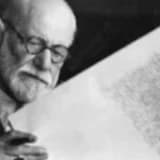WAS THE FATHER OF PSYCHOANALYSIS A GOOD FATHER?

With the popularization of psychology in recent years, most of us have at least heard the name of one of the greatest figures in the history of the field: Sigmund Freud. But today, we’re going to look not at Freud the psychoanalyst, but Freud the father. The founder of psychoanalysis, whose name is still discussed even a century later—was he also a good parent?
Let’s start by briefly getting to know Freud.
He was an Austrian neurologist who challenged the medical understanding of his time by advocating the so-called “talking cure.”
He founded psychoanalysis and introduced concepts such as the unconscious, dream interpretation, repressed drives, and the Oedipus complex.
Even today, he remains one of the most controversial figures in the history of psychology—both for his use of cocaine, his theories centered on sexual drives, and his sexist views toward women.
Freud had six children, but here we’ll focus on his relationship with Anna Freud.
Anna was Freud’s favorite child—his closest companion. While her siblings married and started their own families, Anna devoted nearly her entire life to her father and to expanding his theories.
Sources tell us that Freud affectionately called her “my little general.” He would often take her on long walks, discuss books with her, read notes aloud, and treat her almost like a professional advisor. Naturally, this “special” bond caused some tension within the family, as Anna’s siblings were said to resent her privileged position.
Up to this point, one might think Freud was at least a good father to Anna—but the truth is not so simple.
Freud’s relationship with his daughter was one where boundaries blurred, emotions were repressed, and ethical questions arose.
He was not only the founder of psychoanalysis but also a domineering paternal figure.
Their relationship was both complex and, at times, disturbingly close.
Questions about Anna’s sexual identity were frequently raised. Some sources go further, suggesting she was indeed homosexual.
In 1918, when Anna was 23 years old, Freud decided to personally analyze her—officially to treat insomnia, anxiety, and repressed impulses.
But many believe the real reason was Freud’s concern about her attraction to women.
Her emotionally intense friendships with female companions disturbed him, and through analysis, Freud hoped to “normalize” her.
These analytic sessions continued for years. Anna herself defended the process for the rest of her life—but many later psychoanalysts described it as emotional manipulation, even a form of coercion that changed the course of her life.
Anna Freud possessed great intelligence and creativity, but her personal life remained blurred by her father’s dominance and control.
Her closest lifelong relationship was with the educator Dorothy Burlingham. They lived and worked together, but the nature of their relationship was never openly discussed.
Letters, notes, and testimonies from people close to Anna suggest that she suppressed her sexual orientation—perhaps as a sacrifice to her father’s ideals.
Some psychoanalysts argue that Anna gave up her individuality for her father’s legacy.
Did Freud love his daughter? Yes.
But he also shaped her destiny.
He interfered with her personal desires, her relationships, and even her career choices.
To Freud, Anna was not only a daughter but also the heir to his intellectual empire.
That’s why some historians describe his fatherhood as a form of “hidden narcissistic investment.”
After Freud’s death, Anna devoted herself to preserving his theories while also developing her own—especially in child psychoanalysis and defense mechanisms.
Yet she was always remembered as “Freud’s daughter.”
Her personal achievements and private life remained largely in the shadows.
Though she had close relationships with women, she never lived openly as herself.
Many scholars interpret Anna’s lifelong existence in her father’s shadow as a form of emotional control.
Some argue she was never truly allowed to become an individual.
Freud may well have been the father of psychoanalysis,
but was he truly a good father?
Could the same love that drove him also have suppressed, directed, and shaped his daughter’s life?
I leave those questions to you.
With love. ❤️




